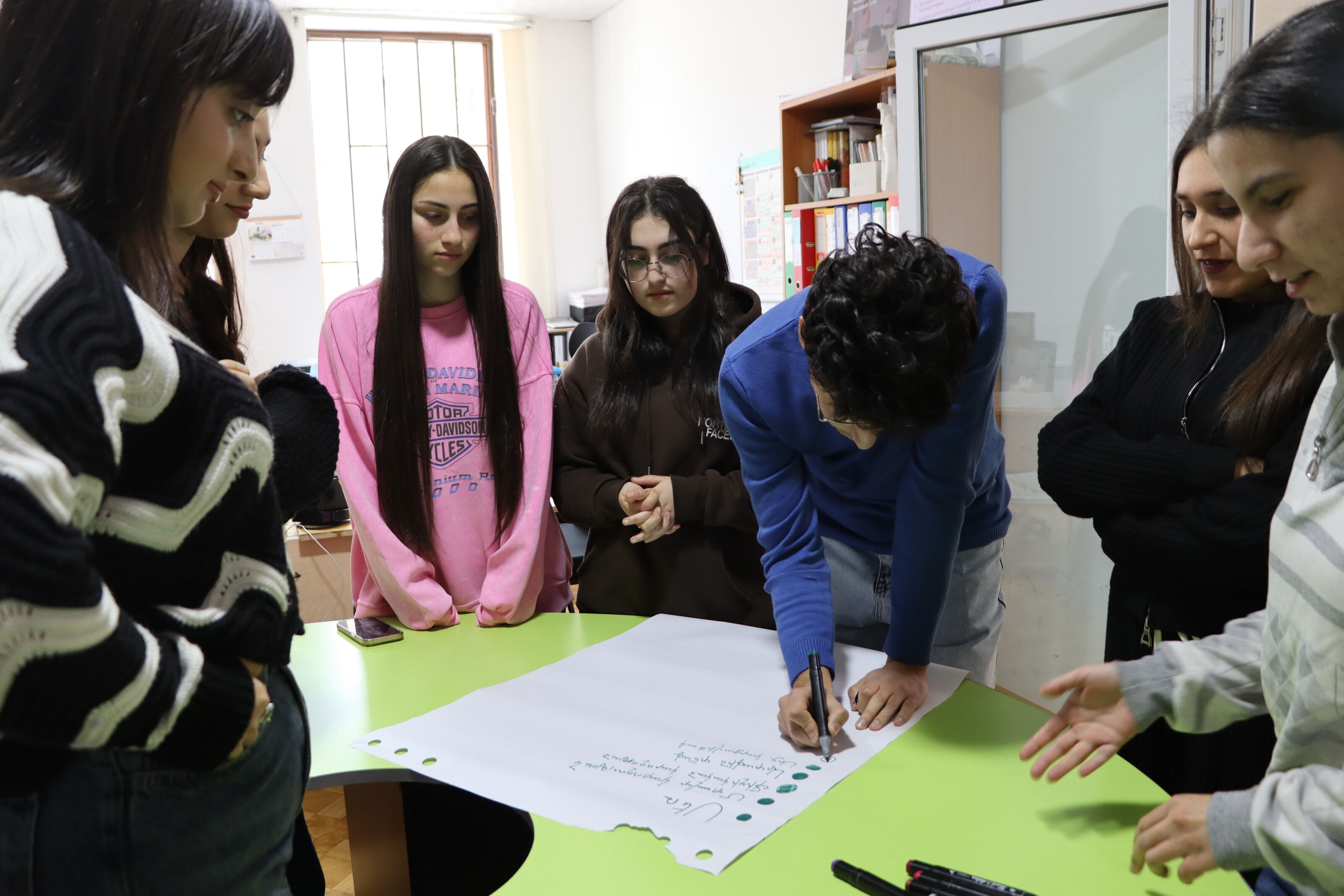
In November 2024, the “NGO Center” Civil Society Development NGO organized a series of in-house multiplication trainings within the framework of the Erasmus+ CBHE DeSIRe project.
The purpose of the trainings was to enhance the soft skills of young people, teachers, and civil society representatives, which are essential for the modern labor market and community development.
The sessions were facilitated by experienced professionals Syuzan Hovsepyan and Vahe Khachikyan. The trainings covered four main thematic areas: media and digital literacy, equality, diversity and inclusion, social entrepreneurship and proactivity, as well as reflective thinking and evaluation skills.
Over the course of eight interactive sessions, more than 330 participants gained practical knowledge and skills aimed at promoting social innovation, creating inclusive environments, and implementing sustainable development ideas. The trainings combined theoretical knowledge with practical exercises, group discussions, and action planning, ensuring immediate applicability.
Participants noted that the trainings not only increased their knowledge but also provided tools they are ready to apply in their work, studies, and community activities. Many expressed willingness to participate in advanced trainings on topics such as social entrepreneurship, media literacy, and inclusive education.
This initiative contributed to the development of individual capacities and strengthened the potential of educational institutions and NGOs, ensuring a long-term impact on the quality of education, civic engagement, and sustainable community development.
The EU ERASMUS+ CBHE project “Developing Soft Skills in Higher Education to Increase Employability in the 21st Century Labor Market in Armenia and Georgia” (DeSIRe) is led by Vanadzor State University named after H. Tumanyan and is implemented in collaboration with partner higher education institutions from Armenia, Georgia, and European Union member countries, as well as the “NGO Center” Civil Society Development NGO.
The project also has 3 associated partner organizations.